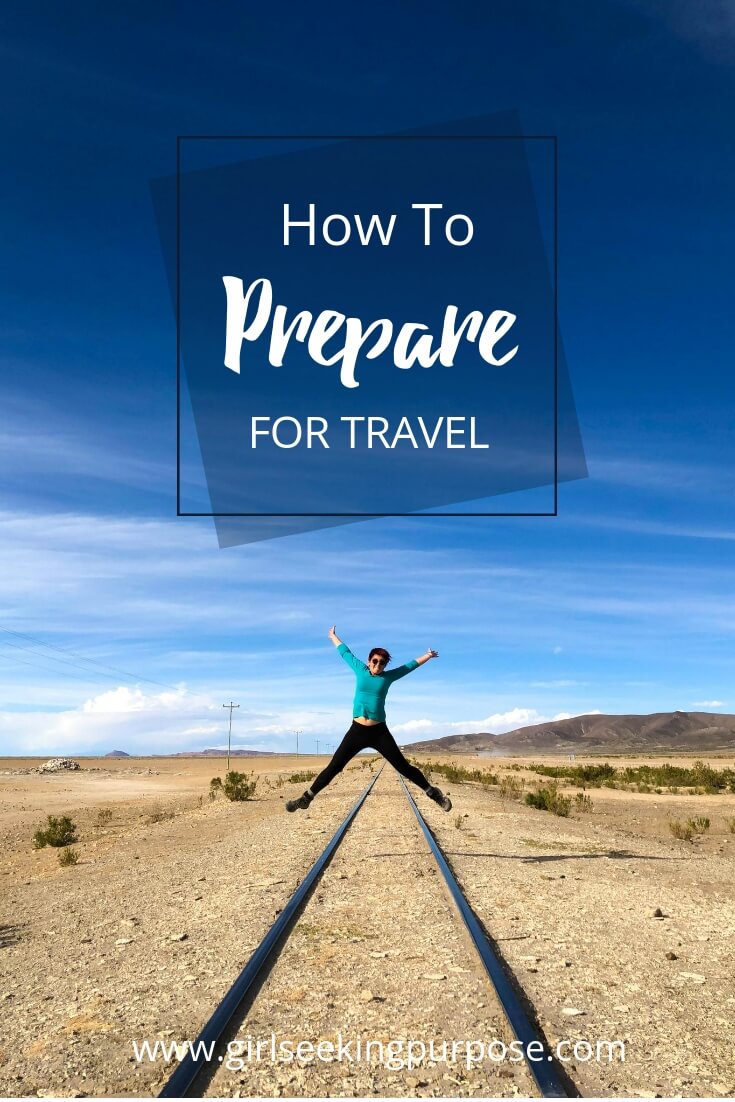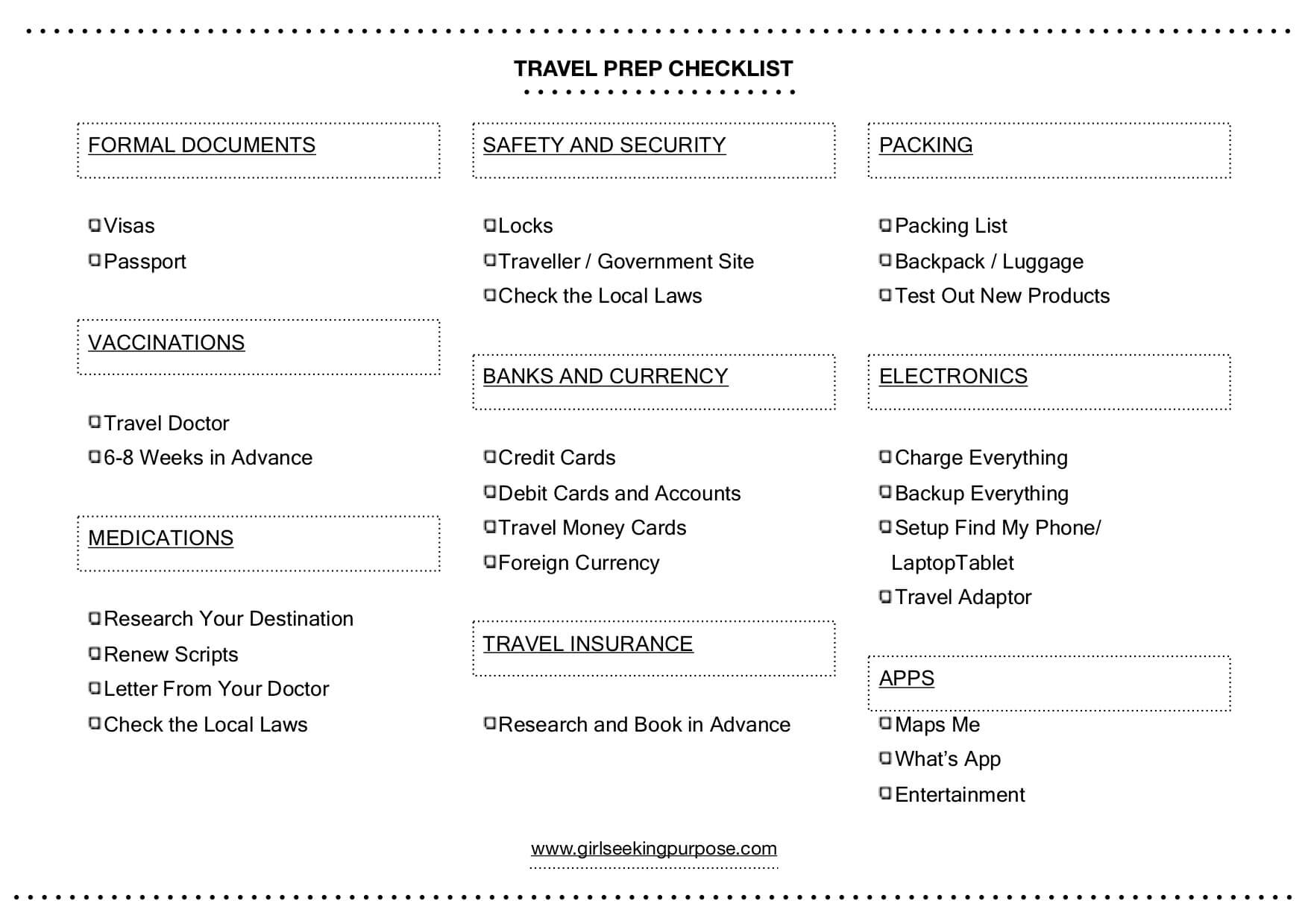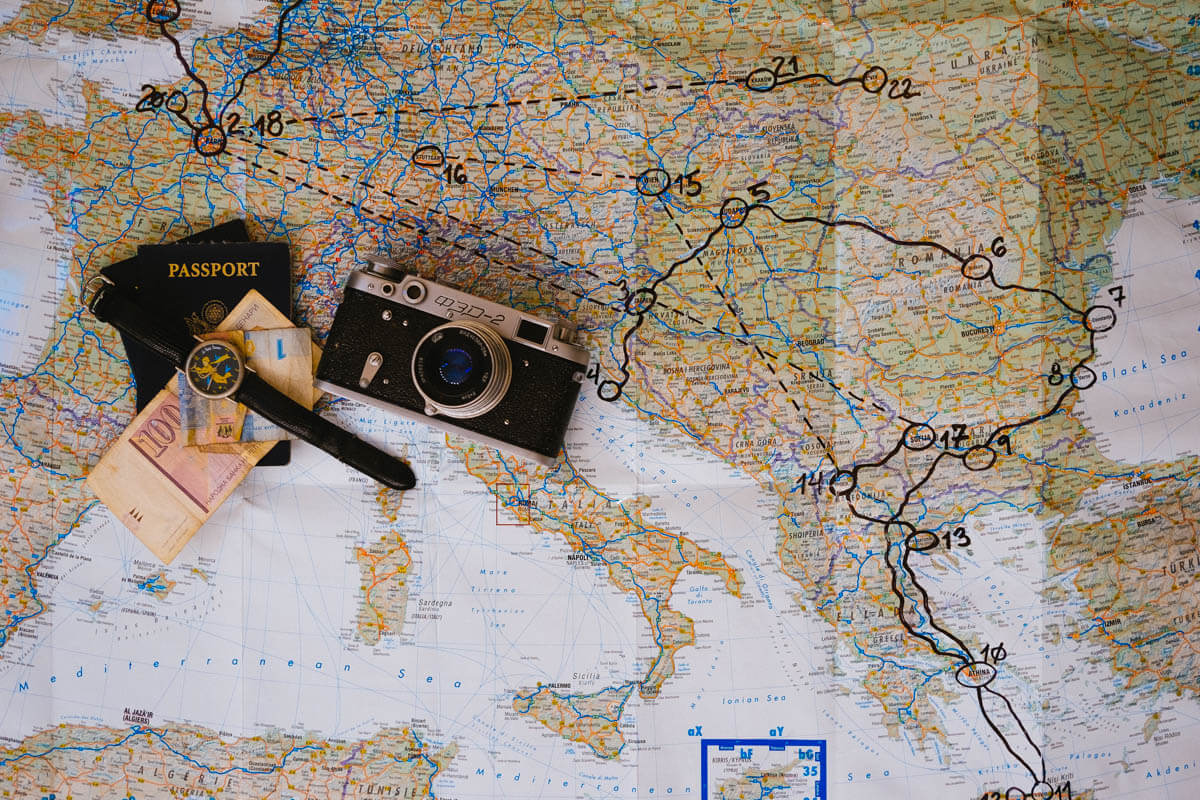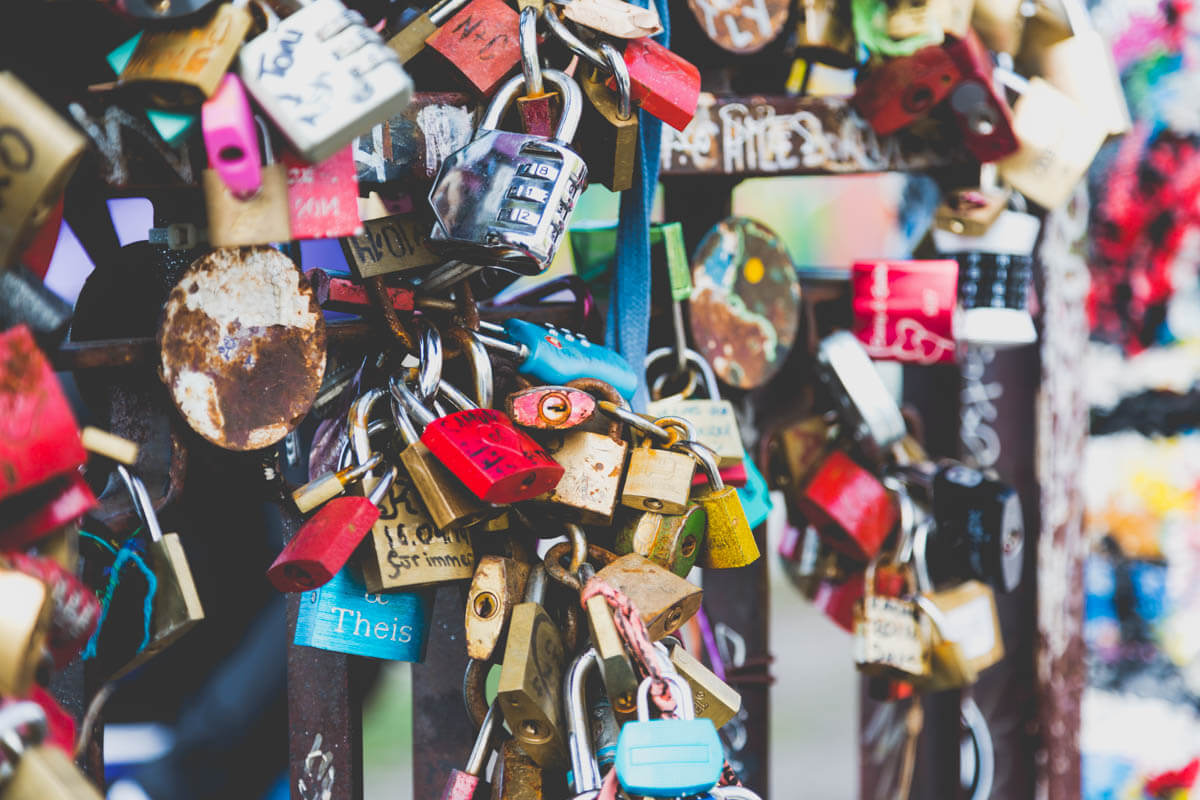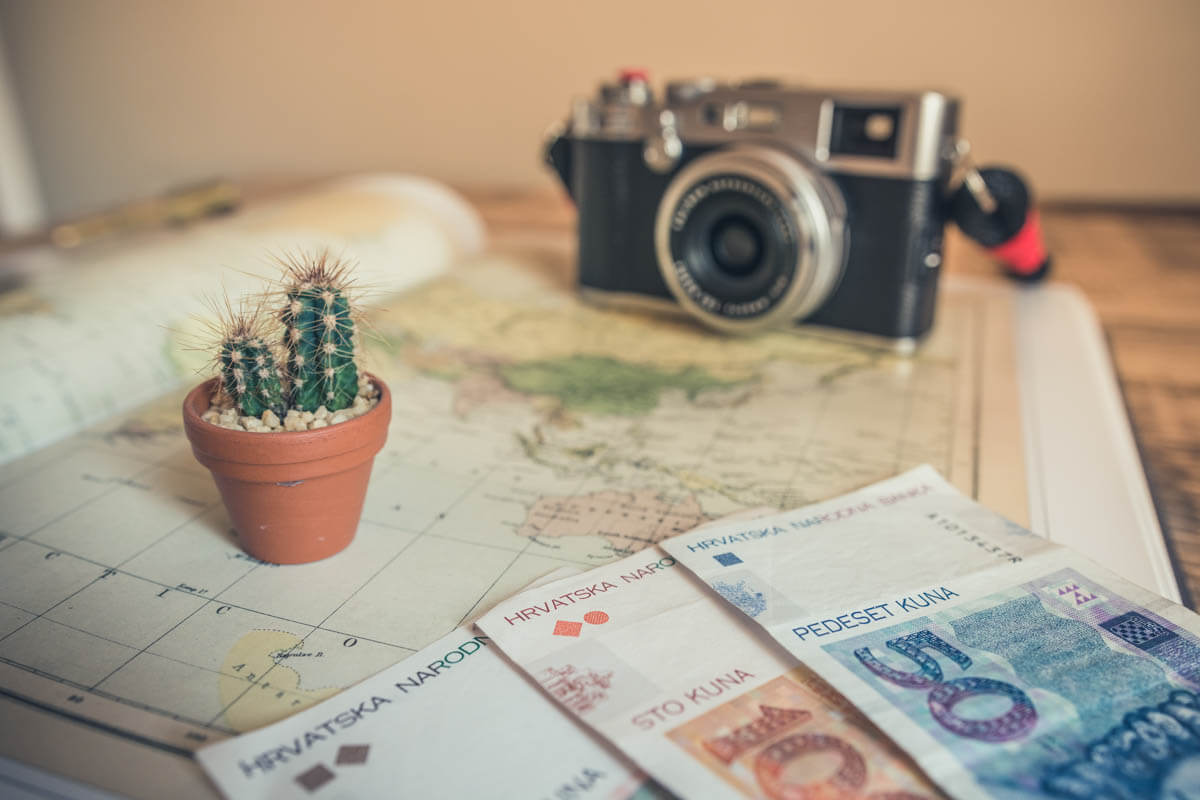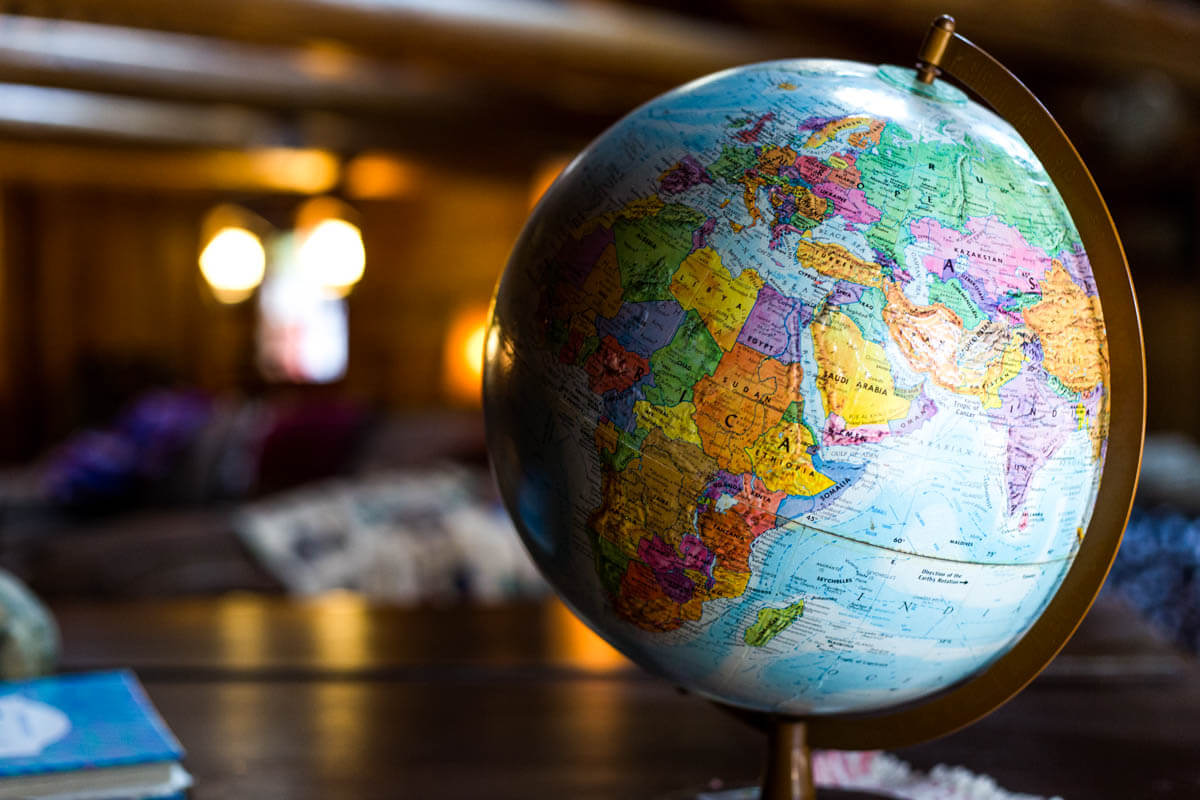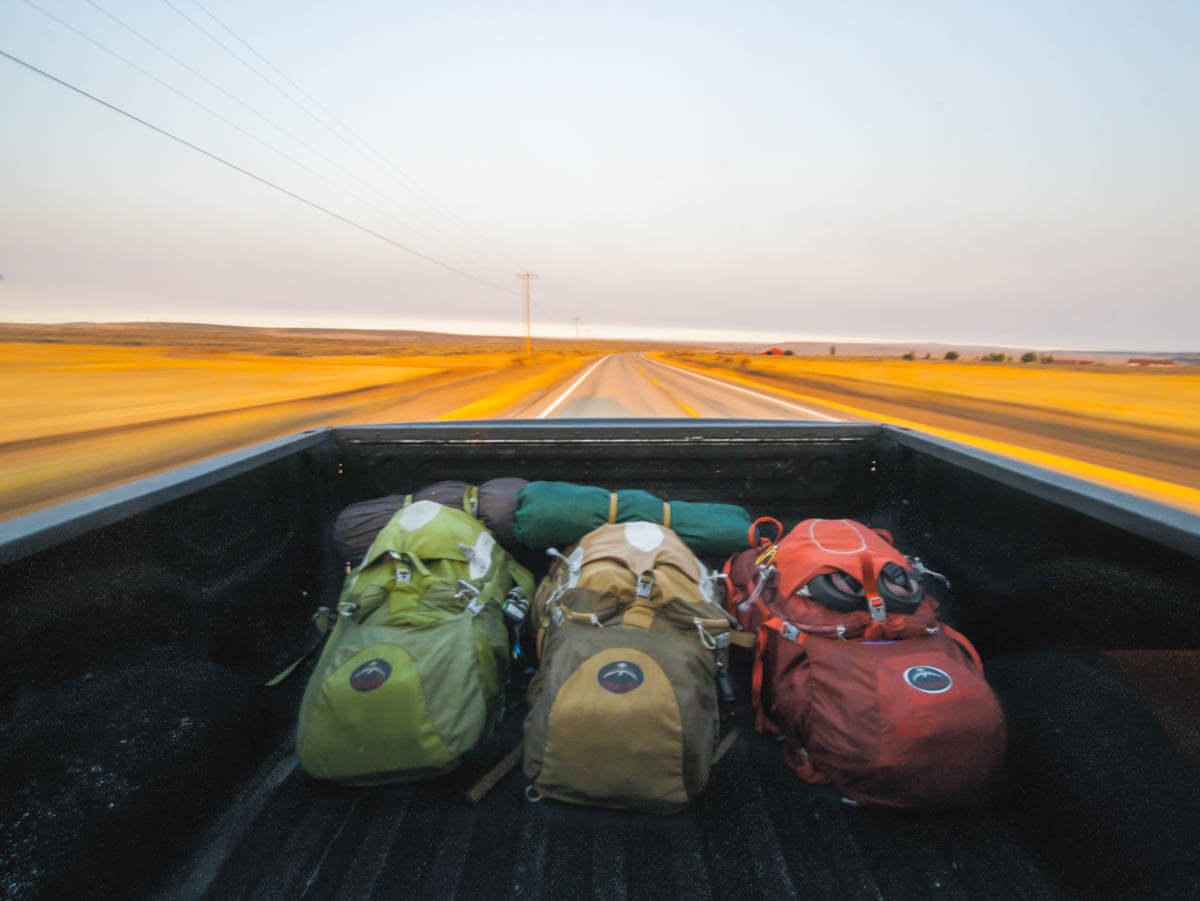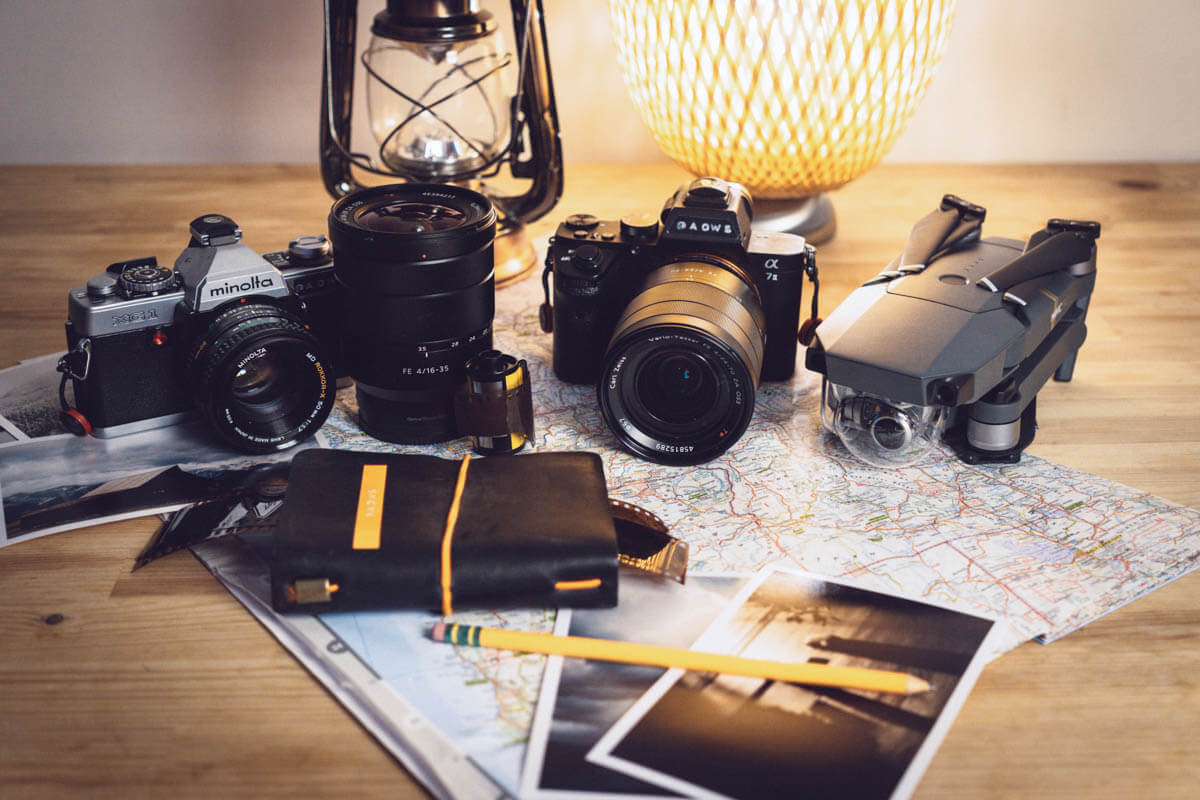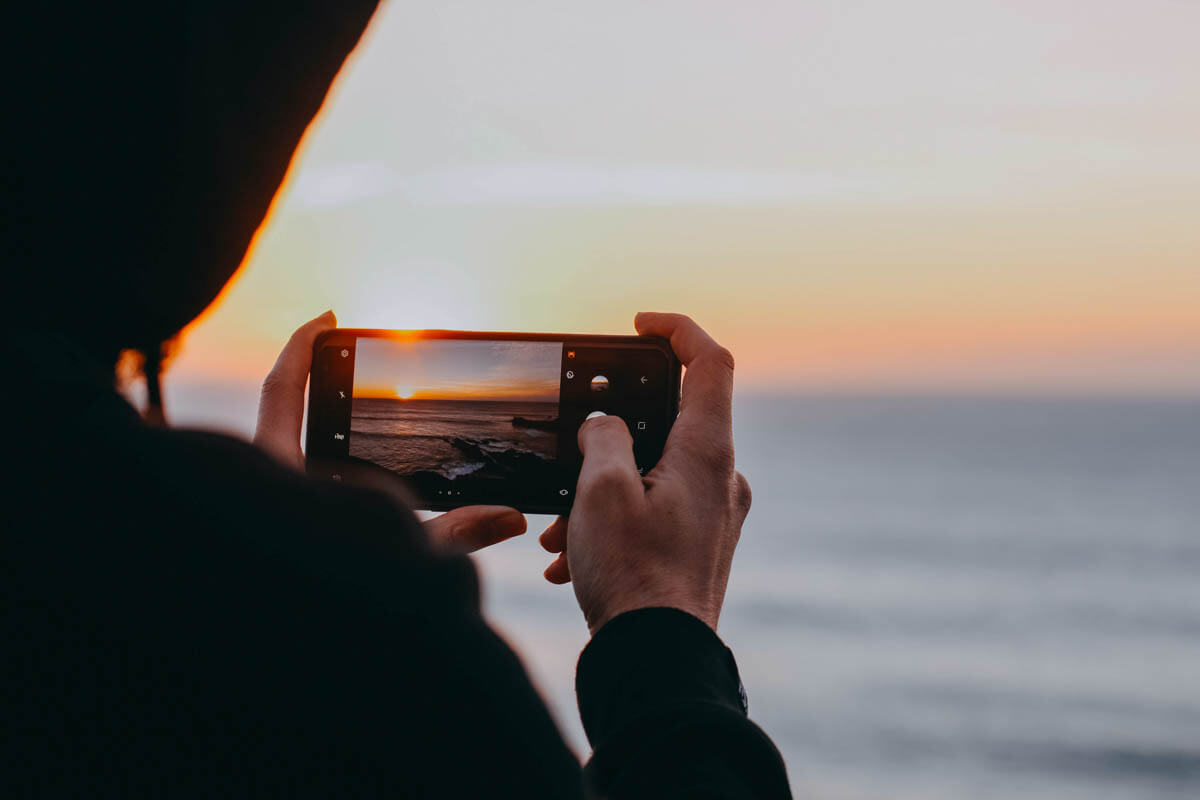Knowing how to prepare for travel can be a tricky process, but it doesn’t have to be. When I initially planned to set off on my 12 month adventure I found the whole process of travel preparation quite daunting and overwhelming. Trying to ensure I had covered all of the bases, when I often didn’t know what the bases even were was an exhausting process.
While there are a tonne of helpful packing guides out there, packing isn’t the only step you should be taking to prepare yourself for both short and long term travel. This checklist and guide is based on my experiences in preparing for trips ranging from two weeks, to six weeks and then as long as six months. This guide should allow you to prepare for travel easily and without the guesswork.
1. Formal Documents
Visas
When you are looking at booking your flights you should also check the visa requirements for the country you plan on visiting. This may change the duration of time you wish to visit or mean that you will need the time to apply for a visa from home or possibly when you get there. Do your research and check with the local embassy for the most up to date information. I’ve found out the hard way that it can be a bit tricky to do this after you book your flights, and often more expensive. Make this one of your first steps you do when you prepare for travel to save yourself time and money in the long run.
Passport
Is your passport valid for more than six months for the duration of your trip, including your return date? Make sure you check this before departure. This is so important, because there is no point booking a trip if you won’t get on the plane. You need to make sure your passport is valid within those timeframes or at least make sure you have sufficient time to arrange a new one.
2. Vaccinations
Your Travel Doctor is Your Friend
If you are travelling to a developing country where the water is not safe to drink and there are a number of viruses and diseases that you don’t have in your home country then you really need to ensure you have all of the appropriate vaccinations before you go. The best person to speak to about this is a travel specific doctor. When preparing for my six month trip to South America, I went to Dr Deb, the Travel Doctor in Brisbane, following advice from friends who had just returned from Latin America.
Speaking to a doctor who is very experienced in travel related vaccinations gives you the peace of mind and confidence that you have received all of the necessary vaccinations to keep you safe and healthy abroad. Keep in mind, that some diseases do not have a cure and if you don’t get the vaccination, you may end up paying for it for the rest of your life.
6 – 8 weeks in Advance
You should start looking at arranging your vaccinations at least six to eight weeks before your departure date. The sooner you go, the more time you have to obtain all of the necessary vaccinations. Some vaccinations take several visits to administer and need to be spaced apart by several weeks. Others take some time before they are effective. If you try and have them done only one or two weeks before your departure date and you are going somewhere such as South America or Africa then you will likely not have sufficient time to be covered.
3. Medications
Research Where You are Going
Do a little research about where you are going and the common illnesses. Finding out if you can drink the water, or if traveller’s diarrhea is common can assist you in deciding what you might need to take with you. Also check the roads and transport to see whether you will need travel sickness and nausea tablets.
When I visited my travel doctor she also helped me arrange all of my medications. She let me know what I really needed to take with me and supplied me with a very user-friendly guide on when to take them. My trip was very outdoor, adventure oriented. Due to this, I was going to be in some areas where first aid and medical assistance may not have been accessible. It was necessary to try and cover all of my bases before I left. While I only had to dip into my supplies for travel sickness, and an unfortunate bacterial infection, it was good to know I had the resources there to cover myself for a majority of concerns.
Get Scripts Renewed
If you have any regular medication that you can’t live without, then it is a good idea to organise these before you leave. It is also an excellent idea to not leave this until the last minute to make sure you get it all. Try to take your scripts with you as well and make sure everything is labelled for customs and so that you can buy the same or similar medications while abroad if needed.
Letter from Your Doctor
If you are taking a large amount of medications with you then it is worthwhile obtaining a letter or medical booklet from your doctor. Having the packets labelled is also useful as I noted above, but having an actual list of what you are taking and why can be very useful when going through customs in a variety of countries with strict laws.
Check the Local Laws
When I prepare for travel in an unfamiliar country I almost always try to get an idea of what medications are not allowed to be taken through customs. Some countries have very strict laws surrounding drugs and medications. Just because something is considered a prescription drug in your country, doesn’t mean it will be in the country you are visiting. Half an hour of googling could save you a 15 year jail sentence.
4. Safety and Security
Locks
Make sure you purchase travel locks before you go. These are useful for securing your backpack / luggage during flights, when in transit and when left at a hostel or hotel. It is also useful for securing a locker in a hostel as often lockers are provided inside the dorms, but rarely include the padlocks to secure them.
Smart Traveller / Government Site
Checking the Smart Traveller or equivalent government website to get yourself up to date on the safety and security advice of your intended destination can be very beneficial in both the short term and the long run. It is important to know if there are any regions you should avoid, or well-known scams to be mindful of. It is also useful to sign up for notifications for each country you intend on visiting to make sure you receive any updates or changes in real time. You can also register your travel plans so your government knows where you are in the event something occurs in the place you are visiting.
Check the Local Laws
It is important to check the local laws for day to day activities in a country you are unfamiliar with when you prepare for travel. Just because something is legal at home, does not mean it will be overseas. Pleading that you did not know to a police officer or a court room often does not get you very far. Ignorance is not bliss in this regard.
5. Banks and Currency
Credit cards
When it comes to credit cards, it is wise to do some research to find a credit card that works well for travel and for you. This usually means a credit card with a good sign up bonus, low or zero currency conversion fees and low or zero transaction fees. My last two credit cards resulted in amazing frequent flyer points and gave me lounge passes as well.
Credit cards are also useful and important for emergency situations when travelling. Travel insurance will often help you out financially after the fact, but at the time if you are trying to frantically flee a country as riots break loose or are being air lifted to a hospital you may need to pay upfront and a credit card can be a life saver in this regard.
Debit cards and accounts
When you prepare for travel, it is a good idea to arrange multiple cards and accounts. This will make it a lot easier in the event a credit or debit card is stolen or lost. If you only have one card or one account while travelling and it is misplaced, then you have to stay in the same place waiting for a new one to be sent. If you have multiple options available to you then you can wait until you get home to arrange a replacement. Please make sure you have the card cancelled as soon as possible and let your bank know about the situation.
Money Cards
Foreign currency cards are amazing if you are travelling to Europe, Canada, the UK, New Zealand and a variety of other countries that have currencies supported by these cards. You basically pay in your local currency and have the currency you need loaded onto the card and use it like a Visa or Mastercard debit card.
I’ve mainly used Travelex cards in the past for this and have loved that there are no ATM fees, that I can top up online and that I can use it the same way as a credit or debit card. They usually provide you with multiple cards which allows you to store them separately in case one is lost or stolen. These cards are unfortunately not ideal for countries in South America, Asia or Africa as you may not be able to load the required currencies onto them. Just check with your local counter or online to confirm.
Foreign Currency
I prefer to take some actual cash with me when I travel as well. It is always good to have at least some currency with you, and depending where you travel you may only be able to pay for taxi’s, hostels and restaurants in cash. I usually take a small amount of the local currency and then take some extra USD with me for emergency cash if the country accepts USD as well. This was particularly useful in South America where I was travelling to a variety of countries over an extended period of time. I could use my USD whenever I crossed a border to a new country, before I had a chance to withdraw the new currency.
6. Travel Insurance
Why Travel Insurance Is Important
When planning my six-month trip to South America I made sure I did a lot of research. I wanted to ensure I was covered for where I was going, what I would be doing and for all of the gear I was taking. If you are travelling for a long time, taking expensive photography, technical gear or electronics, doing a variety of adrenalin pumping activities or visiting high-risk countries then I believe it is necessary to obtain a decent travel insurance policy.
World Nomads
After extensive research and comparisons between policy coverage, price and policy limitations I decided to go with World Nomads for my long term trip. It covered me for the most adventure and high-risk activities, had the least ‘loop-holes’ with regards to exclusions and it gave me the opportunity to extend while I was overseas. You can even start a brand new policy while you are already travelling, which is extremely useful for a long term traveller or anyone whose plans are very open and likely to change as you go. Most travel insurance companies do not allow you to do this.
While I didn’t experience any medical emergencies or major cancellations, I did have to claim for accidental damage to my very expensive mirrorless camera and my brand new iPhone. Making travel insurance claims can often be a nightmare, but I was pleasantly surprised by how easy the process was and how friendly the staff were who assisted me in making my claim online. Both claims went through without issue and I would definitely highly recommend booking your travel insurance through them. Why not get a quote through World Nomads now?
7. Packing
Packing List
Before you can work out what to pack, you need to work out what sort of clothes and gear you will need to take. Do some research to find out what sort of activities you will be doing, what cultural and dress codes apply and if you will need any specific clothing, shoes or technical gear. From there you can start planning what to pack. I always recommend doing an initial list and then cutting it down as much as you can. You and your back will thank you later for packing lighter. You never need as much as you think you do. Unless it is technical gear that you literally couldn’t live without then you can almost always buy it on the road if you really need it.
Backpack
The next step is to work out what backpack, or luggage you want to take. This will depend on your packing list and where you are going. I am a firm believer in using a backpack instead of rollable luggage as I just find it a lot more user friendly for backpacking and long-term travel. The type of backpack you take will also depend on where you are going and what you are doing.
For South America I went to Patagonia for two months with a large amount of trekking on my itinerary so I took a hiking specific backpack. If you aren’t the outdoors type and your bag is only for travel purposes then there are plenty of travel specific backpacks out there that work perfectly. Carry-on only travel is also an excellent option and is a whole world of its own. I recently bought the Osprey Tempest 30L
backpack and fit everything I needed into it for travel in South East Asia.
Test out New Products
If you have bought any gear, packs or clothing specifically for your trip, I would recommend testing it out a few times beforehand. Once you feel comfortable and happy with it then pack it away. You will be wearing those items all the time during your trip so you don’t want to get sick of them before you even leave, but you have to make sure they are suitable.
8. Electronics
Charge Everything
Before you leave the country it helps to make sure all of your electronics are charged and ready to go. You should double check you have all of your chargers, cords and accessories packed as well. Depending where you are travelling, these items may be difficult to replace on the road. If the first leg of your trip is a long haul flight or overland trip then having your electronics ready to go will make life a lot easier.
Backup Everything
If you are taking your phone, laptop or a hard drive then it is very important to back it all up to a hard drive you will be leaving at home before you go. There is nothing worse than losing all of your photos, files and data. It also gives you the opportunity to make room for new photos and videos of your travel adventures. I usually back everything up onto my hard drive at home and then take a hard drive and some USB’s with me to backup as I go. This was vital for my six month trip as I didn’t want to lose all of my photos if something happened to my laptop or phone.
Setup Find my Phone / Laptop / Tablet
In the event of theft or loss, having “find my phone” setup on your devices makes it a lot easier to locate them and get them back. I haven’t personally had to use this, but have heard of others who have successfully got their laptops back because of this.
Travel Adaptor
When travelling for a shorter period of time or to a specific country or region, you may only need the one adaptor. When travelling to a variety of locations where you may need several different adaptors, it can be much easier to take a universal adaptor. It is also convenient to use a universal adaptor that comes with several USB ports. That way you can charge majority of your electronics and devices at the same time.
9. Apps
Maps Me
This was by far the app I found the most useful while I was travelling. Having an app that you can use offline to find your way around towns, cities, countries and even hiking trails made travel and navigation so easy. When I arrived in Argentina, I didn’t actually know Maps Me existed and now I couldn’t imagine travelling without it. All you have to do is download the regions you are going to in advance on WIFI and then you can search, plot routes, look at roads and find your location on the road. Make sure you have the relevant maps downloaded before you go and update them whenever you have WIFI or are changing regions or countries.
Whats App
Before my six month trip, I didn’t realise how popular Whats App was. Every single traveller I met used Whats App instead of Facebook messenger and Skype. A lot of travellers might want to connect to stay in touch or so you can contact each other while travelling, but they may not necessarily want to become friends on social media. Whats App only requires a phone number and WIFI, which makes it very accessible and easy to use.
Entertainment Apps
Depending on how many long-distance flights and buses you will be catching, it might be beneficial to download some entertainment apps like Netflix and Spotify. If you are travelling on a 20 hour long distance bus, then having a couple of movies downloaded on Netflix to your phone or other device before leaving the hostel is a great idea.
--Girl Seeking Purpose
This post contains affiliate links, which means that if you follow a link for a product or service and make a purchase, I receive a small payment at no extra cost to you. I only recommend products or services that I have used, trust and would honestly recommend to my readers. Building affiliate links into my site will help keep my blog going and continue to allow me to produce the content that I hope you are all enjoying reading.
